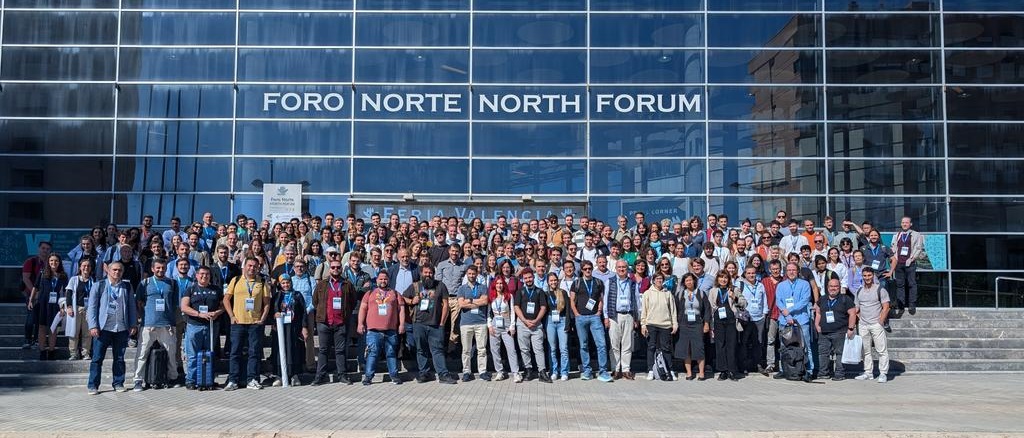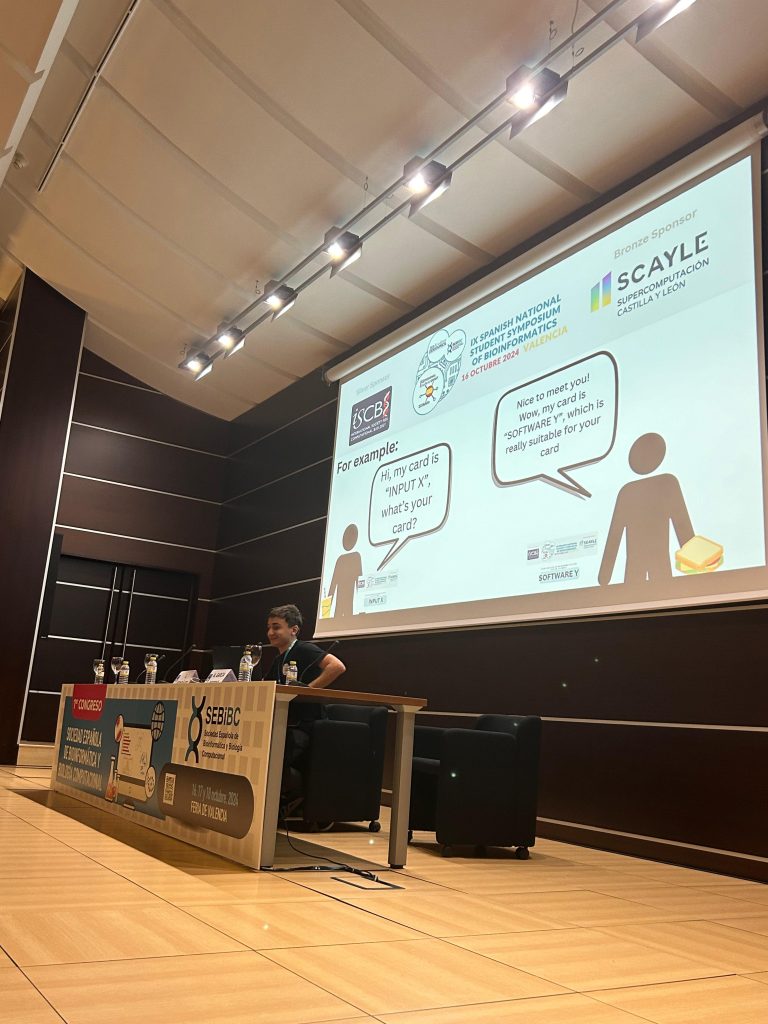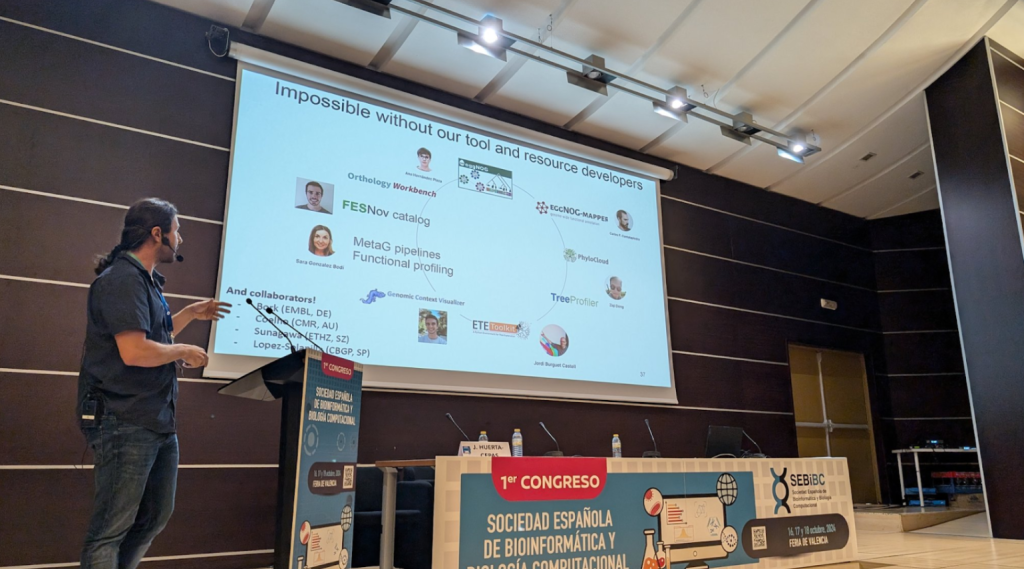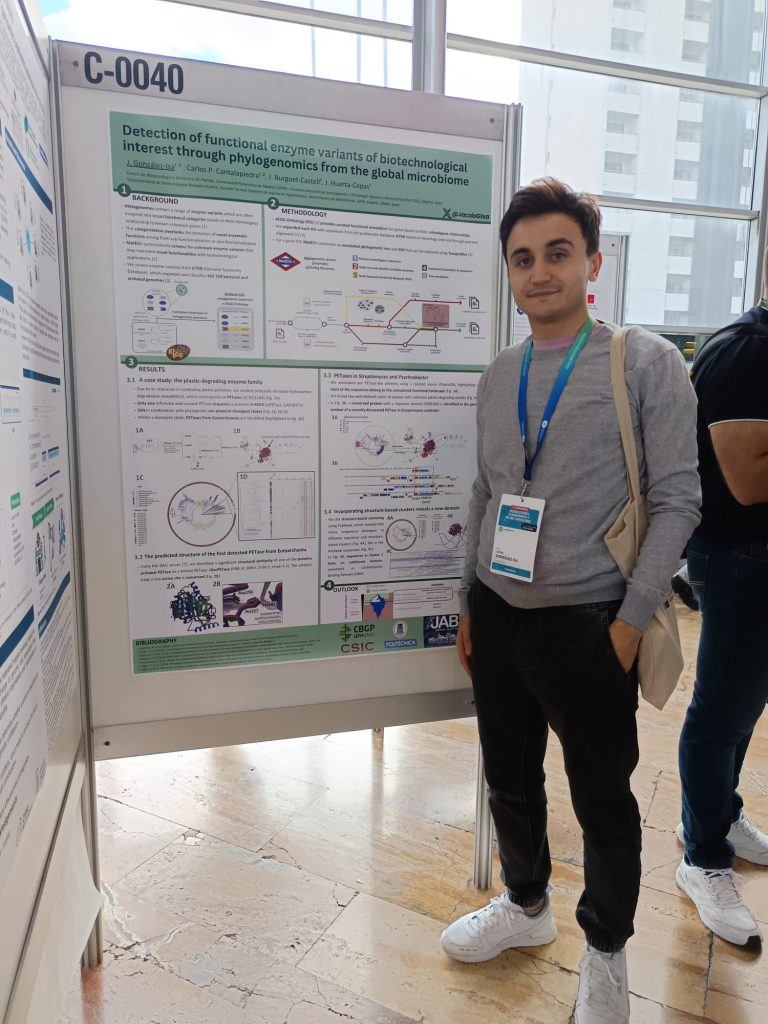The Open Bioinformatics Foundation (OBF) Event Fellowship program aims to promote diverse participation at events promoting open-source bioinformatics software development and open science practices in the biological research community. Jacob González Isa, a PhD student at the University of Cambridge (started October 2024) and formerly an MSc student at the Technical University of Madrid, was awarded an OBF Event Fellowship to attend the first Congress of the Spanish Society of Bioinformatics and Computational Biology (SEBiBC).
From October 16 to 18, 2024, Valencia hosted the first Congress of the Spanish Society of Bioinformatics and Computational Biology (SEBiBC), which I attended thanks to the Event Fellowship awarded by the Open Bioinformatics Foundation (OBF).
This was set to be a turning point for me—and not only because SEBiBC debuted and brought together over 300 attendees—an impressive feat for a society less than three years old. It was something else. Something personal. It was like a bittersweet farewell. This congress took place right in the middle of a professional transition: I finished my bachelor’s and master’s degrees in Spain and am now moving abroad to pursue a PhD.
 Family picture at the end of the 1st Congress of the SEBiBC.
Family picture at the end of the 1st Congress of the SEBiBC.
Let me tell you about three aspects of my experience at this conference and why it was so important to me:
1. First time as a symposium organiser
It was the first time I organised a Networking session at the Student Symposium as a member of RSG (the Regional Student Group in Spain of the ISCB). We created a sort of card game in which the participants, during lunch, had to assemble a bioinformatic pipeline combining their cards. It was so gratifying to see how this “nerdy” twist on networking helped foster connections and spark discussions among the attendees!
 Jacob explaining the rules of the “Pipeline Assembly” networking activity.
Jacob explaining the rules of the “Pipeline Assembly” networking activity.
2. The commitment to Open Science
Open and FAIR bioinformatics was omnipresent during the congress. Christine Orengo, from the University College of London (UCL), told us about their latest work, The Encyclopedia of Domains (TED) into CATH (https://www.cathdb.info/) and its relevance beyond structural Bioinformatics. Jaime Huerta-Cepas, leader of important work in open software and databases like ETE and EggNOG, shared their FESNov catalogue (https://novelfams.cgmlab.org/), with Álvaro Rodríguez as first author, which compiles more than 400,000 novel gene families unique to uncultivated microorganisms. Christine and Jaime had a common view on the cruciality of the open bioinformatics tools and databases they have used, such as Foldseek, MMseqs2, ETE, GMGC, ColabFold and Merizzo. Without these accessible resources and the community’s efforts, their groundbreaking work simply would not have been possible.
 Jaime Huerta-Cepas emphasises the importance of the open-source tools and community behind his work. Image taken from @SEBiBC_es
Jaime Huerta-Cepas emphasises the importance of the open-source tools and community behind his work. Image taken from @SEBiBC_es
In this congress, I understood the excellence of Spanish bioinformatics and its commitment to open science and reproducibility. The list of accomplishments and initiatives is impressive. From digital twins projects led by the Barcelona Supercomputing Center, home to one of the world’s most powerful supercomputers, MareNostrum 5, to cutting-edge tools like SQANTI3 for long-read transcriptomics developed by the Ana Conesa lab, Treeprofiler by Ziqi Deng, ETE4 by Jordi Burguet and CAASTools by Fabio Carteri, and many more that I don’t have space to mention. More than 100 posters filled the room with innovative tools. Everything is open and accessible.
On a 1000-fold smaller scale, I was excited to present my M.Sc thesis work with a poster, where I developed a pipeline called MetEOr to mine enzymes of biotechnological interest. The feedback I received was incredibly helpful and will guide me in refining the documentation and improving how I share my work moving forward.
 During the poster session, I presented my tool MetEOr (https://github.com/jacgonisa/MetEOr) and the results derived from it with the plastic-degrading enzyme family.
During the poster session, I presented my tool MetEOr (https://github.com/jacgonisa/MetEOr) and the results derived from it with the plastic-degrading enzyme family.
3. Where I come from and where I go
To be fair, six years ago, I could have never imagined being in an event like this and starting to feel like a scientist. I am a first-generation university graduate who grew up and studied in a very humble background in one of the poorest regions in Spain, Andalusia. My home city has one of the highest youth unemployment rates in Europe.
In 2023, I found an incredible opportunity in Madrid and joined the Jaime Huerta-Cepas group, where I’ve learned more than I ever have in my entire life. While there, I also discovered RSG, SEBiBC, and Spain’s longstanding commitment to open bioinformatics. It was there that I truly found my place in the bioinformatics community.
However, life has exciting, unexpected turns, and another fantastic opportunity came my way that I couldn’t pass up… So, I packed my bags and started a PhD in October at the University of Cambridge.
I have never hidden that I am scared of going abroad for long periods, but experiences like the one I had this week in Valencia inspire me to kick off a career in bioinformatics internationally with confidence and enthusiasm.
I can’t envisage my professional journey without Spain. This congress in Valencia was so important to me because I believe it’s essential to represent the Spanish (and Andalusian) community while I’m in the UK. Even as I embark on my PhD abroad, I wish to have strong roots in Spain, with tangible connections with people that I can call friends. I want to bring the best Bioinformatics from Spain to the UK and vice versa.
In Valencia, I learnt that bioinformatics is an especially interconnected, transversal discipline, perhaps due to the huge set of crosscutting skills we develop and the fact that international mobility is commonplace. It was inspiring to see foreign researchers thriving in Spain and Spanish scientists like Luz García Alonso (another keynote speaker and a bioinformatician at the Sanger Institute) doing great science abroad.
The Open Bioinformatics Foundation has helped me lay the first stone in the bridge I want to build between Spain and England, and I couldn’t be more grateful.
¡Gracias y hasta pronto!
 After three tiring and overwhelming days, I deserved a delicious dish of paella! Fun fact: paella originated in Valencia, so it is actually more a regional, Valencian dish than a Spanish one.
After three tiring and overwhelming days, I deserved a delicious dish of paella! Fun fact: paella originated in Valencia, so it is actually more a regional, Valencian dish than a Spanish one.